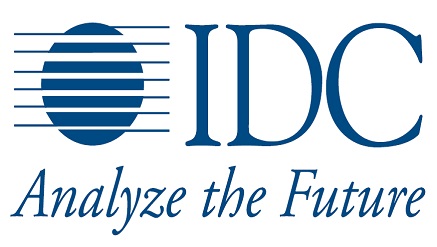E-Business
MEA Exceeds CEMA in Document Imaging Scanner Installed Base

The Middle East and Africa document installed base and growth rates for DIS in the Middle East and Arica (MEA) region exceeds that in Central and Eastern Europe (CEE), mainly owing to end-user preferences.
Meanwhile, the Central Europe and Middle East (CEMA) document imaging scanner (DIS) market posted a 2.7% quarter-on-quarter increase in shipments during Q1 2014 to total 96,373 units, according to IDC’s latest Document Imaging Scanner Tracker.
Market value increased by 11.4% in the same period to reach $139.2 million. Growth was mainly driven by demand for document solutions in key verticals such as finance (banking and insurance) and the public sector (military and egovernment projects).
As the installed base and growth rates for DIS in the Middle East and Arica (MEA) region exceeds that in Central and Eastern Europe (CEE), mainly owing to end-user preferences, Nigeria CommunicationsWeek learnt that organizations in the regions have a greater tendency to use separate devices for printing and scanning, rather than multifunction peripherals (MFP).
This leads to lower replacement costs, yet higher flexibility and reliability. Reflecting this trend, DIS shipments in MEA increased 25.2% in Q1 2014, while the CEE market contracted by 33.4% during the same period.
“All CEMA DIS markets are far from saturation, and growth is expected throughout the 2014-2018 forecast period,” says David Mühlbach, research analyst at IDC CEMA. “This growth will be driven primarily by the need to access business content in digital format anywhere and the growing adoption of document solutions.”
The top five vendors in the CEMA region in Q1 2014 were Fujitsu, HP, Canon, Epson, and Kodak, which together accounted for over 80% market share.
E-Business
Gold Hits Record High Amid U.S. Dollar Weakness and Trade Tensions

Gold prices surged to a fresh record high on Monday, April 21, while the dollar weakened and global stock markets presented a mixed picture, as concerns mounted over former President Donald Trump’s escalating tariff strategy and his ongoing confrontation with the Federal Reserve.

Amid subdued activity due to continued Easter holiday closures in several markets, investors focused on the potential fallout from Trump’s latest trade moves and looked ahead to key economic data releases later this week that may shed light on the broader impact of the evolving U.S.-led trade war.
The administration’s tariff campaign has triggered swift responses from major economies. While some, like Japan, are reportedly seeking accommodations to ease Washington’s trade levies, China issued a sharp warning to governments not to negotiate at the expense of its interests. A spokesperson for China’s commerce ministry said Monday that appeasement and compromise would fail to win peace or respect, calling on nations to avoid sacrificing broader interests for temporary gains.
Beijing’s tone contrasted with Trump’s comments last Thursday in which he signaled ongoing discussions with China, expressing optimism about reaching a deal. However, tensions remain high, with China facing tariffs of up to 145 percent on some goods, and retaliating with duties of 125 percent on U.S. exports.
The growing uncertainty over the global economic outlook has driven investors toward safe haven assets. Gold climbed above $3,384 per ounce, buoyed both by the geopolitical instability and a weakening U.S. dollar. The dollar’s decline has been exacerbated by concerns over Trump’s comments directed at Federal Reserve Chair Jerome Powell, who warned that the tariffs could lead to a temporary rise in inflation and downplayed prospects for interest rate cuts.
Trump criticized Powell for his remarks and hinted at the possibility of removing him from office, stating: “If I want him out, he’ll be out of there real fast, believe me.” Powell has maintained that he will not step down and emphasized the legal foundation of the central bank’s independence.
The dollar fell against major currencies, with the yen and euro gaining strength. France’s finance minister Eric Lombard said Trump’s tariff policies had already damaged the credibility of the U.S. currency and warned that undermining the Federal Reserve would further shake investor confidence. Chicago Fed President Austan Goolsbee underscored the importance of central bank independence, calling it a near-universal principle among economists.
Asian stock markets reflected the uncertainty, with Tokyo’s Nikkei falling 1.2 percent, while gains were seen in Shanghai, Seoul, Singapore, Manila, and Jakarta. Oil prices declined amid renewed fears over global demand, with West Texas Intermediate and Brent crude both dropping 1.7 percent.
Investors are now watching closely for April manufacturing data from key economies, which are expected to provide early signals about the tangible effects of the tariffs. Analysts warn that U.S. fiscal and monetary policy are increasingly being viewed as volatile geopolitical forces rather than stable economic anchors. Stephen Innes of SPI Asset Management said the reputational damage to the U.S. economic brand is becoming entrenched, with global markets and allies adjusting expectations accordingly.
E-Business
Google Blocks 5.1Bn Harmful Ads in 2024, Suspends 39m Accounts

Google’s 2024 Ads Safety Report revealed how artificial intelligence is now a frontline defense against harmful online content, blocking 5.1 billion ads, restricting 9.1 billion more, and suspending over 39 million advertiser accounts, most before a single ad was shown.

The crackdown comes as scams become more sophisticated, with many leveraging AI-generated content or impersonating public figures.
Google’s advanced AI models, powered by Gemini, helped detect fraud faster than ever, spotting signs like stolen payment info, fake businesses, or coordinated scam networks.
In Africa, including Nigeria, the impact is especially important. Impersonation scams and misleading political ads remain a major concern.
In response, Google updated its Misrepresentation policy, deployed a team of 100+ global experts, and took down over 700,000 scam-related advertiser accounts, leading to a 90 percent drop in reported impersonation scams.
With nearly half the world voting in 2024, Google also removed over 10 million election-related ads for failing to meet transparency rules requiring verified identities and clear sponsorship disclosures.
In his reaction, Alex Rodriguez, general manager for Ads Safety at Google, said these numbers show what AI can do when it’s focused on safety.
“We rolled out more than 50 AI model upgrades in 2024, helping us act faster and smarter—stopping threats before users even saw them,” Rodriguez added.
While AI handles large-scale enforcement, human reviewers now focus on complex cases.
Google continues working with global regulators, industry partners, and organizations like the Global Anti-Scam Alliance to keep ahead of evolving threats.
E-Business
DG NITDA Tasks Africa to Lead the AI Revolution Through Strategic Leadership, Inclusive Innovation

The Director General of the National Information Technology Development Agency (NITDA), Kashifu Inuwa CCIE, has urged industry leaders across the continent to integrate Artificial Intelligence (AI) into their business, organisational, and operational models to unlock new opportunities, redefine leadership, and drive smarter decision-making toward making Africa deeply rooted in AI-driven innovation.

Inuwa made this call when he spoke on “Harnessing AI for Strategic Leadership” during a panel session at the Main State of the GITEX Africa 2025 held in Marrakech, Morocco.
The aim of the panel session was essentially to explore how data-driven and intelligence-led strategies can transform business models, optimise resources, and unlock new opportunities through AI-powered processes across various nations.
Speaking to an international audience of policymakers, technologists, and investors, the DG positioned Africa, particularly Nigeria as a rising force in the global AI landscape, championing a people-first and strategy-led approach to AI development and governance.
The DG argued that to be effective in today’s dynamic environment, leaders must evolve into AI-driven leaders and leverage technology not just as a tool, but as a partner in decision-making.
“AI is shifting the skills we value today, as well as the processes we use to do our daily work, so to drive strategic leadership, you need to be an AI-driven leader and find a way to use AI as a tool to create co-intelligence whereby you bring people and computers to work together to deliver your strategic vision as a leader,” he noted.
While urging leaders to combine AI with the unique strengths of their teams to deliver real business value, Inuwa stated that “Strategy must always come first, and technology second.”
He outlined four principles for effectively utilising generative AI which are inviting AI to the tale, maintaining human oversight, designing models with guardrails, and adopting a mindset of continuous improvement.
Inuwa explained that AI is invited to the table by giving it a role in organisational tasks, maintaining human oversight to correct bias and misjudgment, designing guardrails to ensure privacy ethics, and inclusivity, and adopting a mindset of continuous improvement by treating today’s AI as the least capable version that can be used.
He however warned against the risks of deploying AI systems built on data that fails to represent the diverse realities of global societies. Stressing the need for digital visibility of all cultures and citizens, he cautioned that if data doesn’t see a community, the system won’t see it either.
Introducing NITDA’s approach to governance in regulating AI through the Regulatory Intelligence Framework that is anchored on the 3 pillars of Awareness, Intelligence and Dynamism.
“In our approach to regulating AI in governance, we have a framework we call Regulatory Intelligence Framework, which as a regulator we need to be aware of the environment, we need to be dynamic because things change, and we also need to be intelligent. We need to know the data and make sense out of it,” he disclosed.
“Then we have 2 approaches, the first one is a rule-based where you can come up with certain guidelines and expect people to comply with them and we have a non-rule based, which allows them to build use cases, and based on those use cases, put the guard rails and agree on the best practices, which is always the best when it comes to AI governance,” he added.
Envisioning Africa’s AI future in the next 5 years, Inuwa painted a visionary picture where the continent will integrate AI into solving real-world challenges in every economic sector thereby leapfrogging development gaps.
Inuwa firmly averred that by augmenting human capability with AI, the continent can unlock unprecedented levels of innovation, efficiency, and inclusive growth.
“We missed the first, second, and third industrial revolutions, but this fourth one, we must lead it and not just follow.” He concluded.
Other industry leaders who shared their experiences and insightful ideas at the panel session were the Special Envoy on Technology, Republic of Kenya, Philip Thigo, CEO Pesalink, Gituku Kirika, and the Head of Africa, Open AI, Emmanuel Lubanzadio.

 Telecom1 day ago
Telecom1 day agoMTN Nigeria Takes Broadband Services to the Next Level with FibreX Launch

 News1 day ago
News1 day agoSERAP Files Lawsuit Against NBC Over Ban on Eedris Abdulkareem’s Protest Song Tell Your Papa

 E-Financial1 day ago
E-Financial1 day agoFCMB Group Redefines Corporate Storytelling with The Power Of The Group TVC

 General News5 hours ago
General News5 hours agoEFCC Clarifies SCUML Certificate Misuse Amid CBEX Ponzi Scheme Scandal

 E-Financial5 hours ago
E-Financial5 hours agoCBN, NGX Group Defend Economic Reforms at Nasdaq

 Telecom5 hours ago
Telecom5 hours agoDigital Transformation Remains Africa’s Gateway to Economic Advancement – Adumike

 Telecom5 hours ago
Telecom5 hours agoPAFON 2.0: Experts Discuss Pathways to Boost Financial Inclusion in Nigeria

 E-Business5 hours ago
E-Business5 hours agoGold Hits Record High Amid U.S. Dollar Weakness and Trade Tensions

























